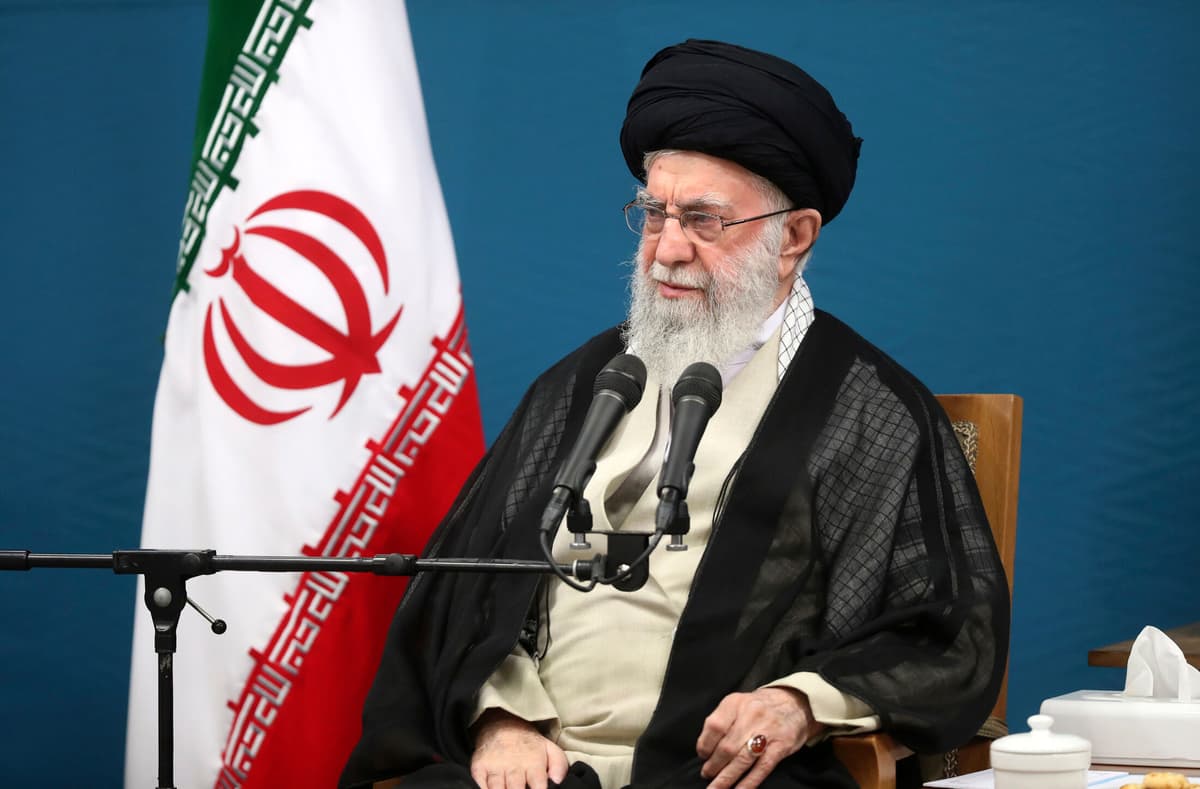Is a Mossad Agent Lurking in Tehran’s War Machine?
That and related questions are causing a panic at the Iranian capital.

Was a central figure in Tehran’s war machine, or someone in his inner circle, a Mossad agent? That question raises panic at the Iranian capital, and is the stuff of region-wide rumors surrounding a Revolutionary Guards commander, Esmail Qaani, who has been out of the public eye since September 27.
On that day, the Israeli air force killed the Hezbollah chief, Hassan Nasrallah, at southern Beirut, in a campaign that decapitated the Iran-backed organization’s upper and mid-level leadership. Mr. Qaani, who commands the Islamic Revolutionary Guards Corps-Quds Force, arrived at Beirut shortly after the attack.
On Thursday, Sky News Arabic reported that Mr. Qaani was rushed to a hospital after suffering a heart attack. He became IRGC-QF commander in 2020, after an American drone strike killed his predecessor, Qassem Soleimani. The unit oversees the Islamic Republic’s various Mideast proxies, as well as the exporting of the Iranian revolution to the region and beyond.
The Sky News report attempts to put to rest earlier claims that Mr. Qaani was killed at Beirut. It follows several reports asserting he has been arrested and interrogated at Tehran over suspicion that he, or a top lieutenant, leaked information to Israel.
Five days ago the Arabic-language al-Arabiya network reported that Mr. Qaani “is under surveillance and isolation, following the Israeli assassinations of prominent Iranian leaders.” That report was followed Wednesday by a more detailed account on the Saudi-owned Middle East Eye website.
Iranians are desperately scrambling to plug possible leaks that gave Israel precise intelligence to conduct pinpoint strikes against Hezbollah commanders. “There is a great deal of paranoia in the leadership in Iran right now, so I find the report in the Middle East Eye plausible,” the policy director at United Against Nuclear Iran, Jason Brodsky, tells the Sun.
On October 4 Israel hit a deeply dug compound at Hezbollah’s stronghold, Beirut’s Dahiyeh district. The target was Nasrallah’s successor, Hashem Safieddine, who was huddled there with top commanders. The strike was reportedly conducted minutes after Safieddine and his crew arrived. None of them could have survived.
Mr. Qaani was initially reported to have been killed there. Yet, Middle East Eye is reporting that he had arrived at Beirut days after the Nasrallah killing, and that he was indeed scheduled to join Safieddine and his group. Yet, Mr. Qaani was said to have canceled at the last minute with no explanation given.
Iranian officials were quick to deny reports of Mr. Qaani’s death. He is “in good health and is carrying out his daily duties,” a deputy commander of the Quds Force and former Iranian ambassador to Baghdad, Iraj Masjedi, told reporters this week.
Yet, eagle-eyed observers noticed that Mr. Qaani was absent from a recent ceremony featuring all of Iran’s top military brass. Days after Supreme Leader Khamanei announced that Mr. Qaani was to receive a medal in a similar ceremony, his whereabouts are unknown to the public.
So, where is Waldo? Was Mr. Qaani killed like Soleimani? Is he carrying out his daily duties? Is he being accused of presiding over a leaky operation that is deeply infiltrated by Israel’s spy agencies, and just how deep is Mossad’s infiltration of Iran’s security agencies?
“I find it hard to believe that Qaani was compromised,” an Iran watcher at Tel Aviv University’s Institute for National Security Studies, Beni Sabti, tells the Sun. Perhaps one or more of the IRGC commander’s top aides have been recruited by Israel, he says, adding that “psychological warfare” could well be stoking the rumor mill.
If so, prominent Iranians seem to be exacerbating the internal turmoil by alleging that the country’s security apparatus has been infiltrated. One of them is a former Iranian president who has turned into a frequent critic of the Tehran leadership, Mahmoud Ahmadinejad.
Earlier this month Mr. Ahmadinejad alleged that the commander of an Iranian intelligence team tasked with monitoring Israeli spying activities was himself an Israeli spy. Up to 20 other members of the counter-intelligence team have also been compromised, the former president told Turkish television.
As suspicion and uncertainty grow at Tehran, Iranians also are bracing for a possible retaliation for the October 1 ballistic missile attack on Israel. The Jerusalem cabinet was scheduled to approve the timing and scope of an Iran operation on Thursday, a day after President Biden reportedly drew American red lines for Israel during a phone call with Prime Minister Netanyahu.
While Iranians are searching internally for suspects feeding Israel with tips, a major Hezbollah figure was apparently killed Thursday in an air strike, the first conducted at Beirut outside the Dahiyeh district, that seemed to rely on precise intelligence, likely from a Lebanese or Iranian source.
The target, reportedly, was Nasrallah’s son-in-law, Wafic Safa. He has been charged with enforcing Hezbollah’s dominance in Lebanese politics by intimidating leaders of the country’s other factions.

